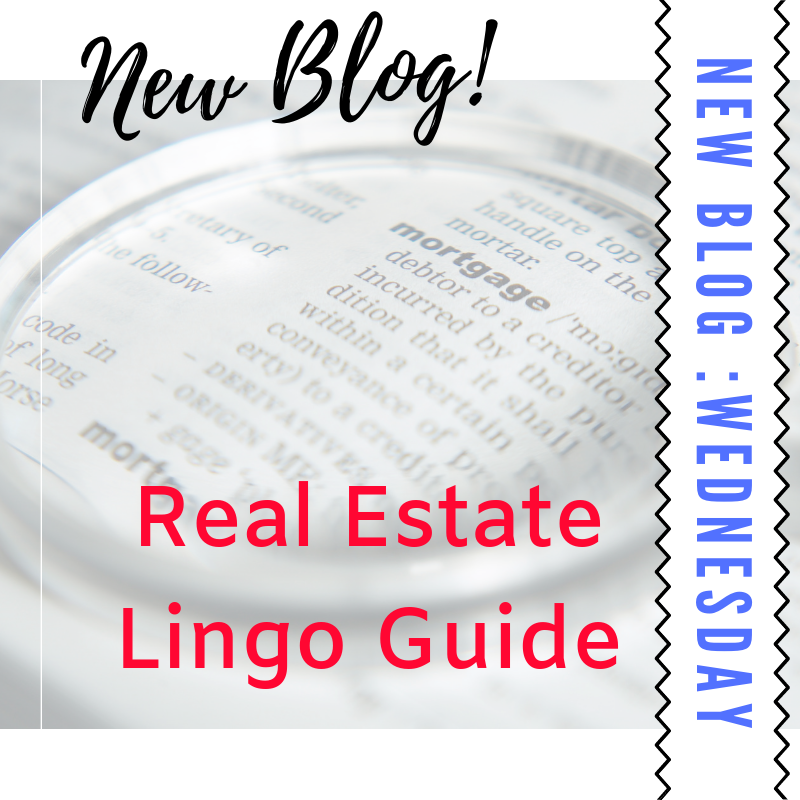
Here is a list of words and phrases to help you on your journey to buy or sell your home!
Acceleration Clause
This is a contract provision requiring the borrower to repay all their outstanding loan to a lender if certain requirements ( outlined by the lender ) aren’t met.
Active Contingent
When a seller accepts an offer from a buyer, that offer is contingent upon the buyer’s ability to meet certain conditions before finalization of the sale. Contingencies might include the buyer selling their home, receiving mortgage approval, or reaching an agreement with the seller on the home inspection.
Active under contract
A house is listed as active under contract” when the seller has accepted an offer with contingencies but still wants the house to be listed active. In this situation, the seller is also likely accepting backup offers in case their current offer fails to meet its contingencies.
Adjustable-Rate Mortgage ( ARM)
The interest rate for adjustable-rate mortgage changes periodically. You might start with lower monthly payments than you would with a fixed-rate mortgage, but fluctuating interest rates will likely make those monthly payments rise in the future.
Annual Percentage rate ( APR)
The annual percentage rate (APR) is the amount of interest charged on your loan every year.
Appreciation
Appreciation is the amount a home increases in value over time. To calculate a home’s likely appreciation rate, add one to the annual appreciation rate, raise this to a power equal to the number of years you’d like to estimate, then multiply that by the current value of the property.
Broker
A broker has passed a broker’s license exam and received education beyond what the state requires of real estate agents. They understand real-estate law, construction, and property management. Real estate agents are required to work under the supervision of a broker
Chain of Title
The chain of title is the documentation of all past ownership of a property. It runs from the present owner to the very first owner of the property.
Closing
Closing is the final stage of the real estate transaction. The date is agreed upon when both the buyer and seller go under contract on the home. On the closing date, the property is legally transferred from seller to buyer.
Commission
Real estate commission is generally 5-6% of the home’s sale price. That commission is usually split between the buyer’s and seller’s agents and is paid by the seller at the time of closing.
Contingency
If a property is a contingent, or the contract contains a contingency, certain events must transpire or the contract can be considered null. A contingency might be that the home must past an appraisal or receive a clean inspection. The sale of a home could also be contingent on the buyer selling their home by a specified date. If either the buyer or seller fails to meet the expectations of the contingency, either party can exit the contract.
Escrow
Escrow is part of the homebuying process. It happens when a third party holds something of value during the transaction. Most often, the “value” the third party holds onto is the buyer’s earnest money check. When the transaction is complete (usually at closing), the third party will release those funds to the seller.
Fair Market Value
A property’s fair market value is its accurate valuation in a free and open market under the condition that buyers and sellers are knowledgeable about the asset, acting in their best interests, and free of undue pressure to complete the transaction.
Home Inspection
A home inspection is carried out by an objective third party to establish the condition of a property during a real estate transaction. An inspector will report on such things as a home’s heating system, the stability of the foundation, and the condition of the roof. The inspection is meant to identify major issues that might affect the value of the home and the stability of your and your lender’s investment and return
Lender
In real estate, the lender refers to the individual, financial institution, or private group lending money to a buyer to purchase property with the expectation the loan will be repaid with interest, in agreed-upon increments, by a certain date.
Mortgage Broker
A mortgage broker shops several lenders, acting as a middle man between lending institutions and the borrower. A broker can compare mortgages from several different institutions, giving the borrower a better deal.
Pending
A sales is considered “pending” if all contingencies have been met and the buyer and seller are moving toward closing. At this point, it’s unlikely the sale will fall through, and the buyer or seller risk losing the earnest money if they walk out on the deal at this point.
Purchase agreement
A purchase agreement demonstrates a buyer’s intent to purchase a piece of property and a seller’s intent to sell that property. The document outlines the terms and conditions of a sale and holds each party legally accountable to meeting their agreement.
Title
A home’s title represents the rights to the property. Those rights are transferred from the seller to the buyer during a real estate transaction and give the buyer legal rights to the property upon closing.

Comments are closed.